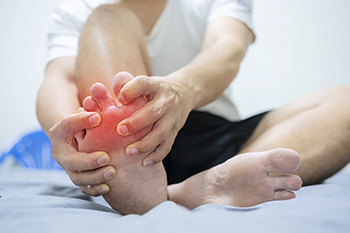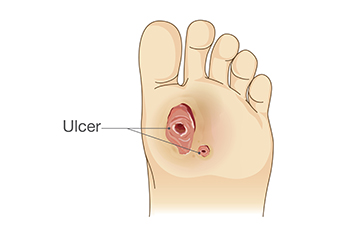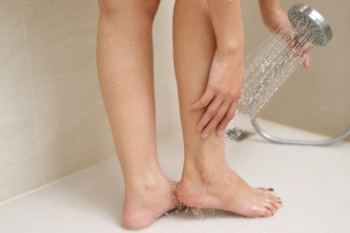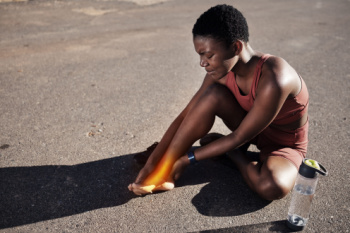
(908) 381-8160Berkeley Heights

Gout is a form of inflammatory arthritis caused by the buildup of uric acid crystals in the joints, leading to sudden and severe pain, swelling, and redness, often affecting the big toe. Over time, repeated gout attacks can result in joint damage, deformity, and chronic arthritis. The accumulation of uric acid, a waste product normally excreted by the kidneys, can be attributed to various factors, including genetics and a diet that is high in purines found in red meat, seafood, and alcohol. Additionally, obesity, certain medications and underlying health conditions, such as hypertension and kidney disease, can contribute to developing gout. Lifestyle modifications consisting of maintaining a healthy weight, avoiding purine-rich foods, limiting alcohol consumption, and staying hydrated may help to reduce the risk of developing gout. Failure to manage gout effectively can lead to complications, such as tophi or lumps of uric acid crystals under the skin, kidney stones, and permanent joint damage. If you have gout, it is suggested that you seek medical attention from a podiatrist, adhere to treatments prescribed, and adopt a healthy lifestyle, which are important for preventing and managing gout effectively.
Gout is a foot condition that requires certain treatment and care. If you are seeking treatment, contact Dr. Janet Leicht from New Jersey. Our doctor will treat your foot and ankle needs.
What Is Gout?
Gout is a type of arthritis caused by a buildup of uric acid in the bloodstream. It often develops in the foot, especially the big toe area, although it can manifest in other parts of the body as well. Gout can make walking and standing very painful and is especially common in diabetics and the obese.
People typically get gout because of a poor diet. Genetic predisposition is also a factor. The children of parents who have had gout frequently have a chance of developing it themselves.
Gout can easily be identified by redness and inflammation of the big toe and the surrounding areas of the foot. Other symptoms include extreme fatigue, joint pain, and running high fevers. Sometimes corticosteroid drugs can be prescribed to treat gout, but the best way to combat this disease is to get more exercise and eat a better diet.
If you have any questions please feel free to contact our office located in Berkeley Heights, NJ . We offer the newest diagnostic and treatment technologies for all your foot and ankle needs.
 Chronic foot ulcers are a challenging complication of diabetes. Diabetic ulcers may arise from a variety of factors, including impaired blood circulation, nerve damage, and high blood sugar levels. These factors collectively compromise the body's ability to heal and fight infection. There are many therapies that podiatrists may use to combat foot ulcers, such as advanced wound care techniques, infection control measures, and strategies to enhance circulation. One key treatment is debridement, which involves the careful removal of dead or infected tissue to promote healing. A podiatrist may apply specialized dressings and topical agents that foster a moist healing environment and support tissue regeneration. Another treatment, called offloading, involves reducing pressure on the ulcer through custom footwear or casts. These are not the only treatments that podiatrists may employ. If you are suffering from chronic foot ulcers due to diabetes, it is suggested you schedule regular appointments with a podiatrist to monitor and treat the condition.
Chronic foot ulcers are a challenging complication of diabetes. Diabetic ulcers may arise from a variety of factors, including impaired blood circulation, nerve damage, and high blood sugar levels. These factors collectively compromise the body's ability to heal and fight infection. There are many therapies that podiatrists may use to combat foot ulcers, such as advanced wound care techniques, infection control measures, and strategies to enhance circulation. One key treatment is debridement, which involves the careful removal of dead or infected tissue to promote healing. A podiatrist may apply specialized dressings and topical agents that foster a moist healing environment and support tissue regeneration. Another treatment, called offloading, involves reducing pressure on the ulcer through custom footwear or casts. These are not the only treatments that podiatrists may employ. If you are suffering from chronic foot ulcers due to diabetes, it is suggested you schedule regular appointments with a podiatrist to monitor and treat the condition.
Diabetic foot care is important in preventing foot ailments such as ulcers. If you are suffering from diabetes or have any other concerns about your feet, contact Dr. Janet Leicht from New Jersey. Our doctor can provide the care you need to keep you pain-free and on your feet.
Diabetic Foot Care
Diabetes affects millions of people every year. The condition can damage blood vessels in many parts of the body, especially the feet. Because of this, taking care of your feet is essential if you have diabetes, and having a podiatrist help monitor your foot health is highly recommended.
The Importance of Caring for Your Feet
Patients with diabetes should have their doctor monitor their blood levels, as blood sugar levels play such a huge role in diabetic care. Monitoring these levels on a regular basis is highly advised.
It is always best to inform your healthcare professional of any concerns you may have regarding your feet, especially for diabetic patients. Early treatment and routine foot examinations are keys to maintaining proper health, especially because severe complications can arise if proper treatment is not applied.
If you have any questions please feel free to contact our office located in Berkeley Heights, NJ . We offer the newest diagnostic and treatment technologies for all your foot and ankle needs.

Taking care of your feet is essential for overall well-being, given that the average person takes between 8,000 to 10,000 steps per day. Daily foot care helps to prevent injuries and alleviate discomfort in the feet, knees, hips, and back. Wearing appropriate shoes tailored to specific activities will ensure adequate support. When purchasing new footwear, factors such as cushioning, arch support, and shock absorption should be prioritized. Regularly inspecting shoes for wear and tear is also important, as worn-out shoes can contribute to foot problems. Additionally, it's advisable to minimize walking barefoot on hard surfaces to avoid inflammation. Pedicures can be beneficial for foot maintenance, provided personal tools are used to reduce the risk of infections. Incorporating stretching exercises and regular foot massages into your routine can further enhance foot health and overall well-being. By following these practices, you can improve comfort, productivity, and quality of life, one step at a time. If foot or ankle issues occur from time to time, it is suggested that you make an appointment with a podiatrist to have your feet examined, a proper diagnosis made, and appropriate treatment administered.
Everyday foot care is very important to prevent infection and other foot ailments. If you need your feet checked, contact Dr. Janet Leicht from New Jersey. Our doctor can provide the care you need to keep you pain-free and on your feet.
Everyday Foot Care
Often, people take care of their bodies, face and hair more so than they do for their feet. But the feet are a very important aspect of our bodies, and one that we should pay more attention to. Without our feet, we would not be able to perform most daily tasks.
It is best to check your feet regularly to make sure there are no new bruises or cuts that you may not have noticed before. For dry feet, moisturizer can easily be a remedy and can be applied as often as necessary to the affected areas. Wearing shoes that fit well can also help you maintain good foot health, as well as making it easier to walk and do daily activities without the stress or pain of ill-fitting shoes, high heels, or even flip flops. Wearing clean socks with closed shoes is important to ensure that sweat and bacteria do not accumulate within the shoe. Clean socks help to prevent Athlete’s foot, fungi problems, bad odors, and can absorb sweat.
If you have any questions please feel free to contact our office located in Berkeley Heights, NJ . We offer the newest diagnostic and treatment technologies for all your foot and ankle needs.

A podiatrist can help diagnose and treat osteoid osteomas in the foot or ankle. These doctors can identify these benign, rare bone tumors and offer treatments like surgery or radiofrequency ablation, or RFA, to relieve pain. Surgery may require limited weight-bearing for a few weeks, while RFA does not have this restriction. Both methods effectively alleviate pain, with RFA often chosen when the tumor is seen on imaging tests. However, if the tumor is close to important nerves or blood vessels, RFA might not be an option. Podiatrists also consider the distance from the tumor to the cartilage to minimize damage during treatment. If you have foot pain that is persistent or worsening, it is suggested that you schedule an appointment with a podiatrist for an evaluation. A proper diagnosis can be made, and proper treatment administered, thereby helping you regain comfort and mobility.
Some foot conditions may require additional professional care. If you have any concerns, contact Dr. Janet Leicht of New Jersey. Our doctor can provide the care you need to keep you pain-free and on your feet.
Rare Foot Conditions
The majority of foot conditions are common and can be treated by a podiatrist. Standard diagnostic procedures are generally used to identify specific conditions and treatment can be rendered. A podiatrist also treats rare foot conditions which can be difficult to diagnose and may need extra attention and care.
There are many rare foot conditions that can affect children. Some of these can include:
Freiberg’s disease - This can be seen as a deterioration and flattening of a metatarsal bone that exists in the ball of the foot. It typically affects pre-teen and teenage girls, but can affect anyone at any age. Symptoms that can accompany this can be swelling, stiffness, and the patient may limp.
Kohler’s disease - This often targets the bone in the arch of the foot and affects younger boys. It can lead to an interruption of the blood supply which ultimately can lead to bone deterioration. The patient may limp or experience tenderness, swelling, and redness.
Maffucci syndrome - This affects the long bones in a child’s foot leading to the development of abnormal bone lesions. They are benign growths and typically develop in early childhood and the bones may be susceptible to breaking.
A podiatrist can properly diagnose and treat all types of rare foot conditions. If your child is affected by any of these symptoms or conditions, please don’t hesitate to call our office so the correct treatment method can begin.
If you have any questions please feel free to contact our office located in Berkeley Heights, NJ . We offer the newest diagnostic tools and technology to treat your foot and ankle needs.